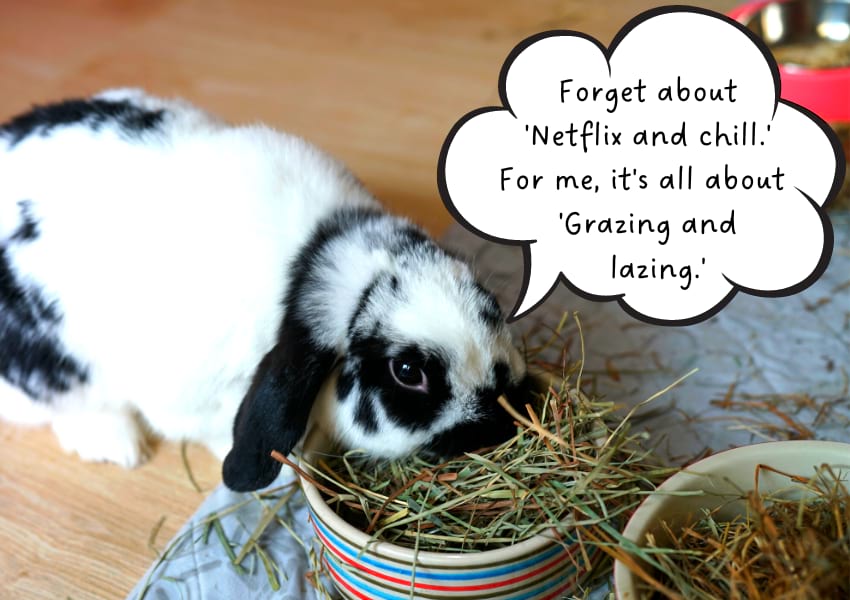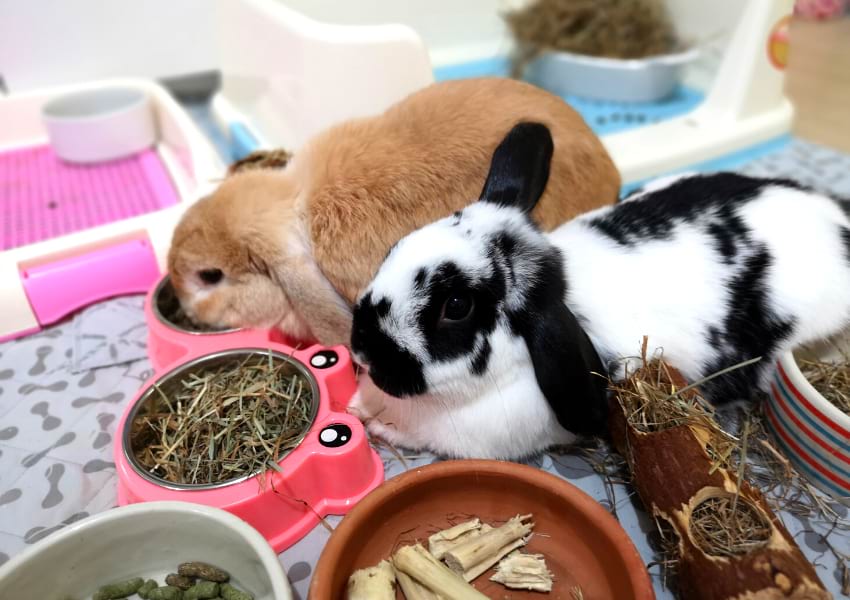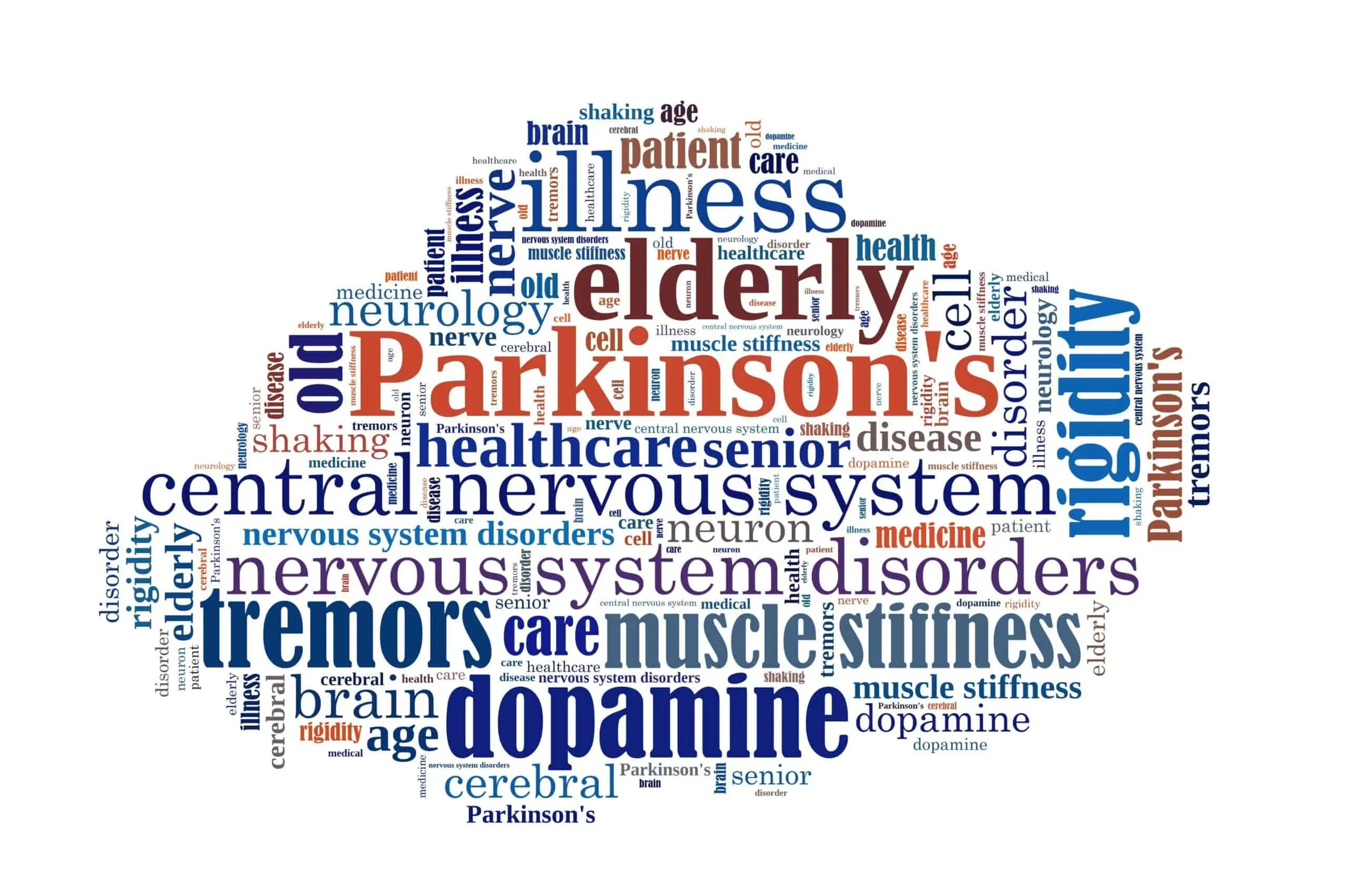How long can a rabbit go without food and water?
While it’s not something you want to test, you’re probably wondering how long your rabbit can hold out if he refuses to eat.
In this article, not only will you learn how long a rabbit can survive without food and water, but you’ll also learn more about what happens to the body at that point, why it’s so important that this situation never occurs, as well as what you can do to get your rabbit to eat and drink more.
Let’s get started.
How Long Can Rabbits Survive Without Food?
A rabbit can technically survive without food for a day or maybe even a few days. However, by “surviving,” I mean barely making it by the skin of their teeth. In truth, going days without food or water is toeing the line of life and death for a rabbit.
It’s never good for a rabbit to be without food, specifically hay and water.
Just 12 hours without food or water have detrimental consequences for your rabbit’s health.
How Long Can Rabbits Go Without Hay?
In theory, rabbits could survive a day without hay, but they really shouldn’t go without it. 80% of a rabbit’s diet should consist of hay, grass, or a mix of both, making it more vital than pellets.
Rabbits should always have an unlimited supply of good hay or grass to graze on all day. They need it for the crude fiber that keeps their guts functioning. It’s also essential for their dental health, with or without pellets.
Pellets just don’t have the needed crude fiber levels that hay and grass do. So, if you run out of hay, you can get away with it overnight if you compensate with some leafy greens or grass.

Can a Rabbit Survive on Just Hay?
Yes, a rabbit can survive on a hay-only diet. In fact, many rabbit owners don’t feed their rabbits pellets. It’s a rabbit’s version of the “raw diet” for dogs, where your rabbit only eats fresh hay, grass, and greens, just like their wild cousins.
Again, hay is more critical to a rabbit’s diet than pellets because of the crude fiber levels. Plus, pellets are really just compressed hay and other plants. However, that doesn’t mean they’re unhealthy in any sense (depending on the brand, of course).
High-quality pellets are packed with beneficial vitamins and nutrients that rabbits may not need with a proper diet, but they’re still a good health boost. So, if you don’t feed your rabbit pellets (the hay-only diet), you should offer some extra veggies, leafy greens, and fruits to make-up for it.
What Happens if a Rabbit Doesn’t Eat?
Let’s talk about what happens if your rabbit doesn’t eat, starting with a timeline.
Timeline for a rabbit that doesn’t eat:
- Immediately: If your rabbit is hungry and there’s no food available, he will immediately start seeking out alternatives, like bedding, wooden furniture, or other hazardous household items it can chew on. This could lead to severe and even fatal consequences.
- After a few hours: If your rabbit has no appetite, his stomach will quietly grumble. Even without hunger, his gut will make some gurgling noises.
- After 12 hours: Your rabbit’s digestion will slow down, which puts them at risk for GI stasis.
- After a day: Without food or water, your rabbit will likely become dehydrated, eventually leading to kidney malfunction.
- After a couple of days: Organ malfunction will become fatal.
Risks of Your Rabbit Going Without Food
Again, 12 hours without food and water leaves your rabbit at risk for serious health problems, including dehydration, gut blockages, bloat, and GI (Gastrointestinal) Stasis.
GI Stasis, also called gut stasis, is a dangerous digestive issue in rabbits that describes a lack of movement in the gastrointestinal tract. This means your rabbit’s gut isn’t moving, causing a blockage, bloat, or other side effects.
Because gut stasis can form under the radar, here are some signs to look out for:
- Diarrhea or no poop at all
- No interest in food or water
- Lack of energy
- Grinding teeth
- Hunched posture
- Bloating, gas
If left untreated, GI stasis could be fatal. So, if your rabbit hasn’t eaten in 12 hours and shows some of these signs, you should take them to the vet immediately.
How Long Can Rabbits Go Without Water?

Rabbits should have a constantly fresh supply of clean water. They should never go over a day without drinking water, at the most. And that timespan gets even shorter as the weather gets hotter, even for indoor rabbits. Even a few hours can be dangerous.
Beyond hydration and temperature control, water is also necessary for a rabbit’s digestion and kidney, bladder, and circulatory functions. Without water, your rabbit can get dehydrated quickly, which leads to a domino effect of health problems.
Signs of dehydration in a rabbit:
- Lethargy
- Dark and thick urine
- Tiny, misshapen, almost-black droppings
- Lack of appetite
Do Rabbits Prefer Water Bowls or Bottle Feeders?
‘Water Bottles vs. Water Bowls’ is one of the biggest debates among rabbit owners. Most rabbits prefer drinking from open dishes, even if they had been used to drinking from a bottle.
Yes, bowls can be tipped, and bedding can be thrown into them, but they’re still better than the bottle. Bottles aren’t ergonomically suited to rabbits in the long run because of the positioning and they only release one drop at a time which can prevent your rabbit from drinking enough. They can also easily get clogged or malfunction in other ways, leaving your rabbit without any water.
Here are some great tip-proof water bowls to make sure your rabbit is never without water:
Why is My Rabbit Not Eating or Drinking?
There could be a few reasons why your rabbit isn’t eating or drinking anything. The best-case scenario is that he’s not eating or drinking because he’s just picky, which is entirely possible. However, it’s rather unlikely, especially as the hours go by and he gets hungry.
Here are some more likely reasons why your rabbit has no interest in bis food or water:
Illness/Pain
- Eaten something bad
- Gut issues: GI stasis, blockage, bloat, gas
- Parasitic or bacterial infection
- In pain from illness or injury
Dental Problems
- Pain from overgrown teeth
- Broken, rotten teeth
- Abscesses, oral ulcers
Stress
- Lonely and depressed
- Overstressed
- In shock from injury or near-death experience
What to Do if Your Rabbit Isn’t Eating or Drinking

The first thing you should do if your rabbit isn’t eating or drinking anything is to evaluate the cause. Look for any signs of illness, pain, or stress. Make sure to feel for bloat. If your rabbit is bloated, try some baby gas drops for relief.
If that isn’t the case, try conducting the “treat test.” Offer your rabbit his favorite irresistible treat. If he wants nothing to do with it, then there is definitely something wrong. Contact the vet if it’s been a few hours and your rabbit still hasn’t eaten. Keep trying to entice your rabbit to eat using these tips.
How to Get Your Rabbit to Eat More Hay
Here are some tips to help you entice your rabbit to eat more hay:
- Try a different kind of hay
- Find a fresher brand, supplement with some grass
- Feed fewer pellets – should only be 5% of a rabbit’s diet
- Offer hay by water dish AND litter box
How to Get Your Rabbit to Eat His Pellets
Your rabbit not eating his pellets is not as big an issue as not eating hay or drinking water, but here’s how to get him to eat his pellets:
- Try a different pellet brand
- Mix some fruits and veggies in there
- Try a foraging matt instead of a dish
How to Get Your Rabbit to Drink More Water
Here’s how to ensure your rabbit drinks enough water to stay hydrated:
- Offer the bowl instead of the bottle feeder. – if you’re trying to switch over, and your rabbit isn’t drinking, use both until he learns to drink from the bowl.
- Provide a bigger or shallower water bowl
- Refresh water multiple times a day
- Use cold water, not warm
- Try filtered or bottled water instead of tap water
How Long Can I Leave My Rabbits Alone?
Rabbits can be left for a day or two if you’ve left them with enough food, hay, water, space, and things to do. However, don’t leave your rabbits in their cage all day and night.
If you’re leaving for the night, leave your rabbits in a large enclosure or bunny-proofed room. Any longer than that, you should call on a trusted rabbit-savvy friend to come and check in and spend some time with them. For anything longer than a couple of days, someone will need to feed and clean up after your rabbits.
Conclusion
Just because rabbits can go a day or two without eating, that certainly doesn’t mean they ever should. At that point, the situation will involve a laundry list of health complications that may not be able to be reversed.
Rabbits should never go without food and water for long. So if your rabbit hasn’t eaten all day long, even after using these enticement tips, you should definitely seek out a vet.
The post How Long Can Rabbits Go Without Food & Water? appeared first on Animallama.

Offered by our Wellcare World friend at
Trending Also -> Physiotherapy Terahertz Technology TeraMD
Wellcare World specializes in providing the latest advancements in wellness technology, supplementation, and lifestyle changes that improve health and increase the quality of people's lives. To learn more, visit WellcareWorld.com and begin living a better life today.
Share Us With Others








